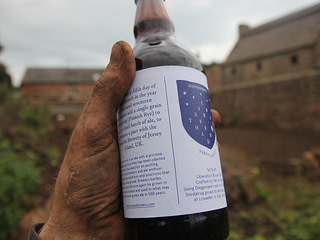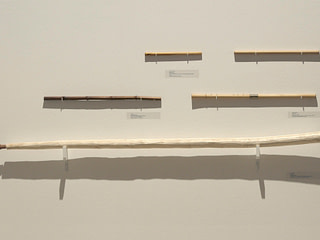An offshore gathering at St Aubin’s Fort with a range of local stakeholders, to discuss and propose future scenarios, government policy, economic activity and public infrastructures that would support conservation efforts in Jersey. Led by Cooking Sections the meeting investigated forms of food production and hospitality that can respond to man induced environmental transformations, seeking to define the main challenges Jersey is facing and brainstorm strategies, actions and precedents that could offer progressive and alternative practices and approaches.
Those present represented a wealth of knowledge, innovation and expertise relating to food production on the island, from cultivation, to distribution, preparation and consumption, alongside those with a special interest in the conservation of local habitats and ecosystems. Participants included Steve Smith (chef), Justin Le Gresley (farmer), India Hamilton (chef/scientist), Simon Soar (Jersey Hospitality Association), Bob Tompkins (National Trust Lands Committee), Tony Legg (aquaculture farmer) and Elspeth Legg, Nigel Jones (Jersey in Transition), Kevin McIlwee (Jersey SeaSearch), Jacqui Carrel (Save our Shoreline Jersey) and Javier Rodriguez (Standartthinking).
The gathering acted as the official launch of CLIMAVORE Jersey, inviting a range of local dining establishments to consider the notion of conservation cooking and the use of edibles as practical conservation tools.
Short summary
From 9.30am until 7.30pm we were stranded out at sea, as the tide came in and filled the bay. Surrounded by water, the discussion revolved around some of the factors and challenges affecting the quality of our water supplies and marine environments, from geology and climate, to animal effluent, oil tanks over water courses and nitrate or agro-chemical run-off.
We explored food security on an island that exports the vast majority of the food it produces, agricultural diversification, deep rooted meadows for year round grazing, the re-wilding of the countryside and forest farming, the demand and potential for native oysters, contour ploughing and hedgerow management, building soil that is able to hold water and support life, opportunities for small scale farming, eco-tourism, conservation in education and the potential for establishing higher education and post graduate research.
We hope that the launch of CLIMAVORE Jersey and the exchanges that have taken place over the past year become a catalyst for further action, as we continue to consider what conservation cooking would taste like in the local context. CLIMAVORE explores the use of seaweeds and bivalve molluscs, but what about Re-Wilded Plates, Forest Garden Feasts, Deep-Rooted Meat, Contoured Veggies or Hedge Habitat Liquors?
Jersey has the potential as a small island state to radically re-imagine the way natural resources and agricultural assets are managed, in a relatively short amount of time and with huge long-term benefits for future generations. It is a question of social, economic and existential resilience. As consumers our habits can fuel or support change, to protect and rebuild local eco-systems, upon which more depends than we often realise. The future of food is as much in our hands as those of politicians or farmers.
Artists
Related activities
Partners
Ebb & Flow
The launch of CLIMAVORE Jersey
An offshore gathering with local stakeholders at St Aubin’s Fort, to discuss future scenarios, government policy, economic activity and public infrastructures that would support conservation efforts in Jersey.













Leave a Reply